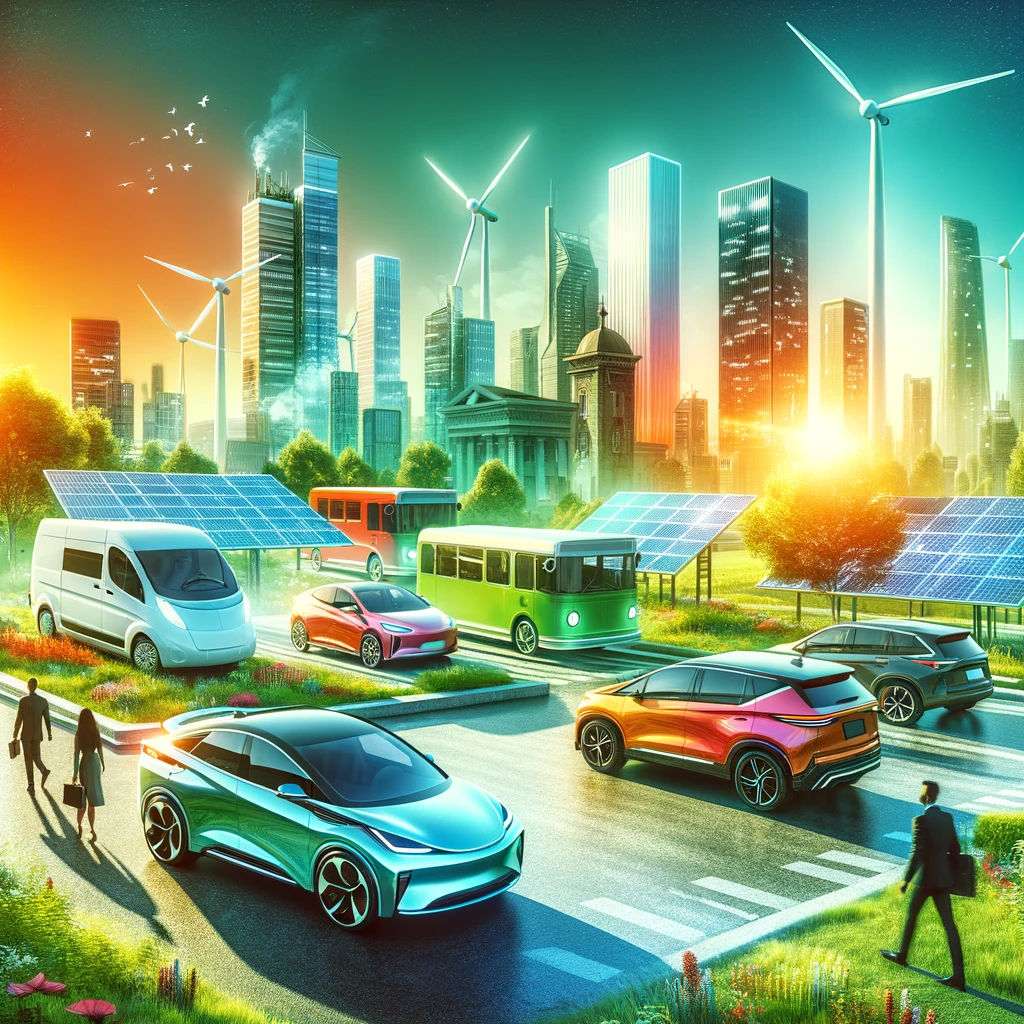As the world grapples with the urgent need for sustainable development, electric vehicles (EVs) have emerged as a beacon of hope in the quest for eco-friendly transportation solutions. With their potential to significantly reduce carbon footprints, decrease air pollution, and integrate with renewable energy sources, EVs are at the forefront of the eco-revolution, paving the way for a greener, cleaner future.

The Environmental Impact
Reduction in Greenhouse Gas Emissions
One of the most profound benefits of electric vehicles is their ability to cut down on greenhouse gas emissions. Unlike traditional internal combustion engine vehicles, EVs produce zero tailpipe emissions, contributing to cleaner air and a significant reduction in the overall carbon footprint of the transportation sector.
Improved Air Quality
Electric vehicles help in significantly improving air quality, especially in urban areas where traffic congestion is a major source of air pollution. By eliminating pollutants such as nitrogen oxides and particulate matter, EVs contribute to healthier urban environments, reducing the incidence of respiratory diseases and enhancing the quality of life.
Economic Advantages
Lower Operational Costs
EVs are not just good for the planet; they’re also kind to your wallet. Electric vehicles offer lower operational costs compared to their gasoline-powered counterparts, thanks to the lower cost of electricity as a fuel and fewer moving parts requiring maintenance.
Job Creation in Green Industries
The rise of electric vehicles is stimulating growth in green industries, from EV manufacturing and battery production to renewable energy sectors. This transition is creating a plethora of job opportunities, contributing to economic development while steering the workforce towards sustainable industries.
Energy Efficiency and Renewable Integration
Superior Energy Efficiency
Electric vehicles are inherently more energy-efficient than traditional vehicles. With a higher percentage of the energy used for actual vehicle movement, EVs ensure that less energy is wasted, leading to a more efficient transportation system.
Synergy with Renewable Energy
EVs offer the unique advantage of being able to integrate with renewable energy sources, such as solar and wind power. This synergy allows for a truly sustainable transportation ecosystem, where vehicles are powered by clean, renewable energy, further reducing the reliance on fossil fuels.
Technological Innovation and Consumer Benefits
Advancements in Battery Technology
The EV revolution is driving rapid advancements in battery technology, leading to longer ranges, faster charging times, and more affordable prices. These innovations are making electric vehicles more accessible and practical for everyday use.
Enhanced Driving Experience
Beyond the environmental and economic benefits, electric vehicles offer an enhanced driving experience. With instant torque, quiet operation, and smooth acceleration, EVs provide a level of performance and comfort that is reshaping consumer expectations for what a vehicle can be.
Conclusion
The benefits of electric vehicles for sustainable development are clear and compelling. From environmental and economic advantages to technological innovations and an improved driving experience, EVs are leading the charge towards a more sustainable future. As the world continues to embrace electric transportation, the vision of a cleaner, greener planet becomes increasingly attainable, marking a significant leap forward in our global sustainability efforts.
